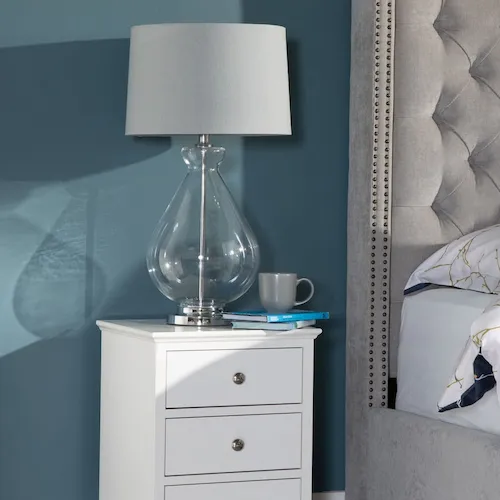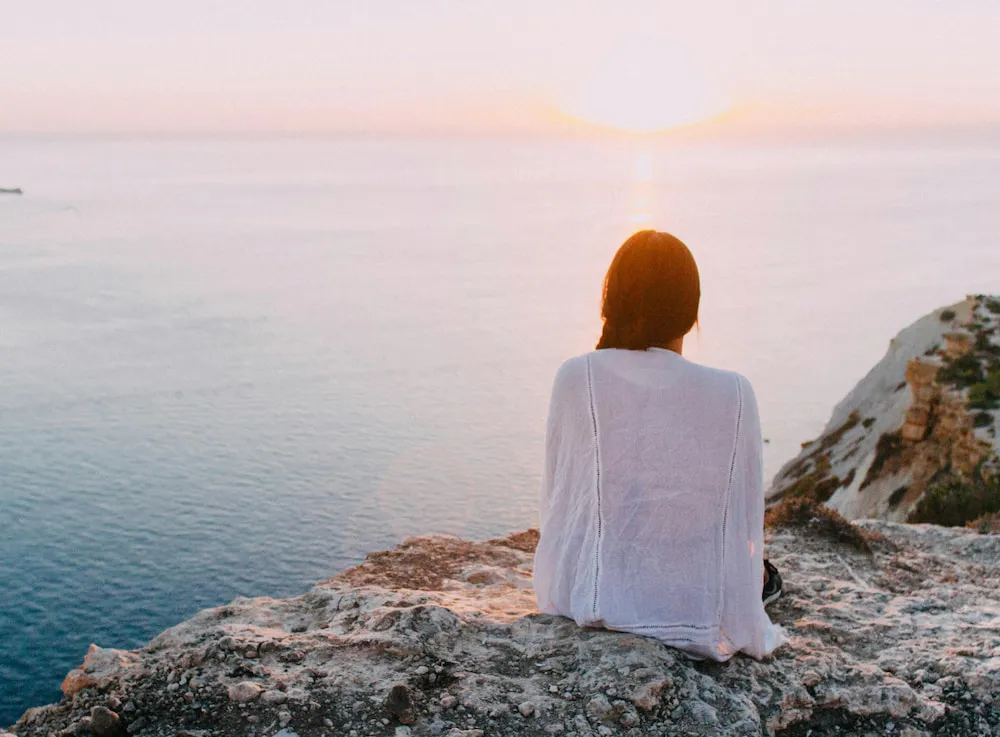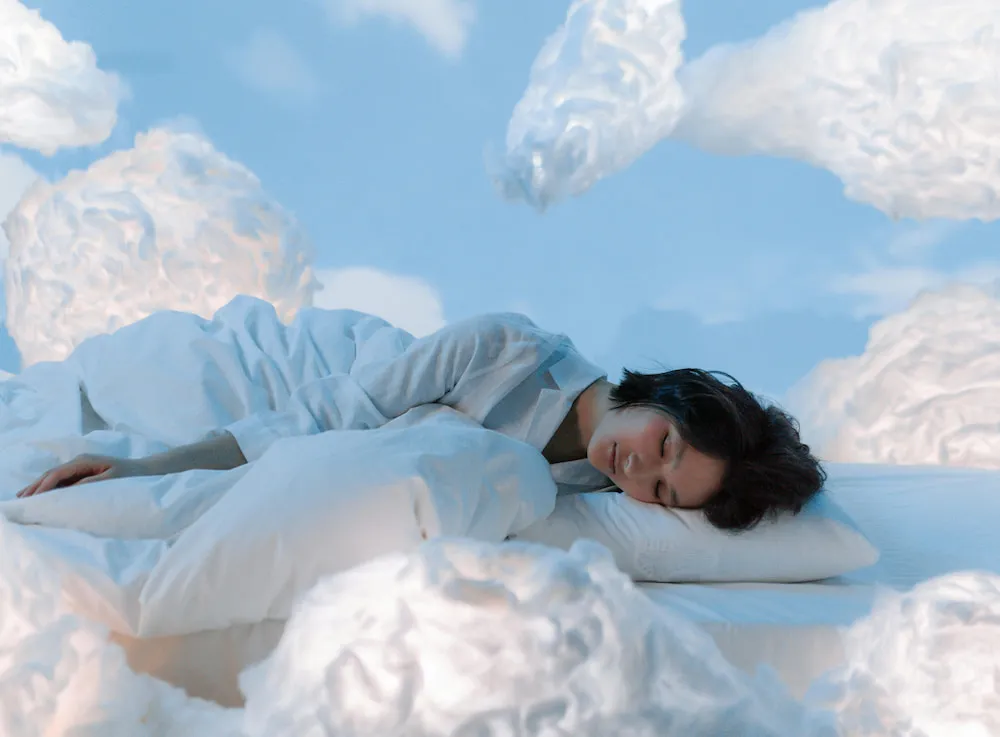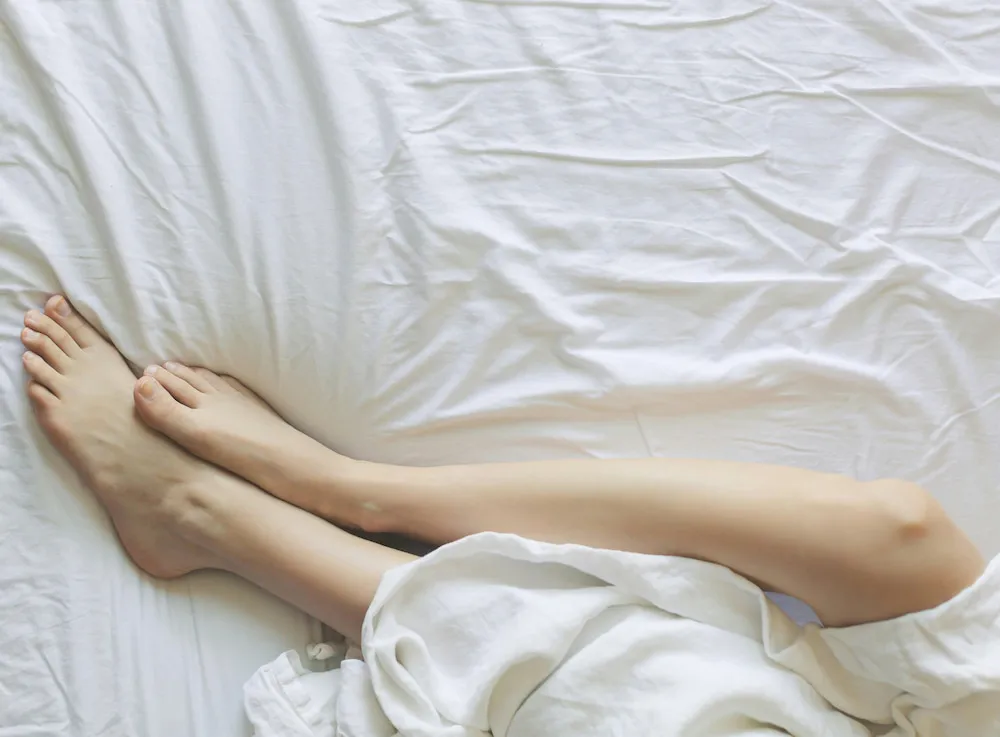One of the reasons that I became a Sleep Consultant is because I love to sleep and also because I really need it. While my husband can manage to get through a day quite cheerfully after a patchy night of sleep, I’ll feel like I am moving through a groggy fog - headachy with no appetite, drowsy and downright grumpy. I need my 8 hours, and I usually fall asleep easily and sleep soundly (unless disturbed by one of my little humans). But recently I find that sleep is not coming so easily and is not as solid as usual. I have had several nights of tossing and turning for a couple of hours before I finally found sleep and I’ve also had a few nights where I woke in the middle of the night for no reason and found it difficult to go back to sleep. I find that I am not alone: friends and family are experiencing something similar. As we ride out the global pandemic that has consumed 2020 and early 2021, unsurprisingly, people are finding that their sleep is suffering. With anxiety levels running high and our normal routines in disarray, it can be difficult to wind down and fall asleep easily. However, there are a number of things that we can do to try to maximise our chances of a good night’s sleep. The umbrella term for much of this is Sleep Hygiene. I rather dislike the term as it sounds a bit sterile. It simply means practising good habits around sleep in an effort to encourage better sleep.
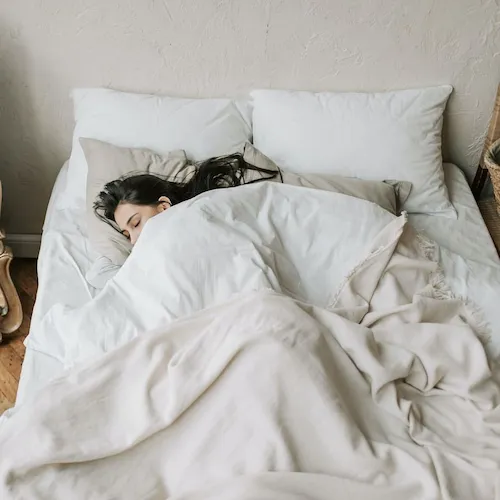
Make Your Bedroom A Restful Room Associated With Relaxation & Sleep
Try to avoid working in your bedroom (though I know this can be challenging as we battle to find a quiet corner to work in at the moment). Sometimes there is no other option but at least to shut down the laptop and put all work out of sight before bed. Try to keep your bedroom tidy and clean. If you are considering redecorating, then calm, restful colours can have a real impact on mood – think muted greens, blues, greys, and pinks. Avoid bright yellows, reds, oranges, and purples which are stimulating and best kept for other areas of the home.
Invest In A Good Quality Mattress & Bedding
When choosing a mattress, consider what position you typically end up in for most of the night. How you sleep can and should affect your choice of mattress. A back sleeper will often sleep better on a medium mattress, a side sleeper on a slightly softer mattress (memory foam is great for side sleepers), whereas a tummy sleeper will sleep better on a firm mattress. Good quality bedding is also really important. Man-made fabrics and particularly polyester (avoid, avoid!) tend to encourage sweating. Cotton sheets are always far superior for regulating temperature and the higher the thread count, the softer the fabric. It is true that high thread count sheets can be pricey, but I cannot think of a better time than now to invest in our sleep. Change your bedding once a week. Is there anything better than fresh clean sheets?
EZ Living Furniture Clear Table Lamp with Shade - Bree.
Pay Attention To Light & Temperature
Try to use lamplight rather than strong overhead lights before bed, this encourages the production of melatonin which is the sleepy hormone that we produce in the run-up to bedtime. Try to keep your bedroom cool. Research shows that we all sleep better in a cooler room while also staying cosy under the covers.
Have A Good Bedtime Routine
This is something I talk about so regularly with babies and small children, but it applies to us adults too! A bath or shower before bed encourages good sleep; the process of getting warm and then cooling down induces a feeling of sleepiness and it’s nice to feel fresh before getting between those aforementioned cotton sheets. Turn off those screens! We are all guilty of scrolling through social media on our phones or tablets before we sleep but it isn’t a good idea. The blue light emitted is stimulating and the endless commentary on the pandemic can be anxiety-inducing. Pick up a book, a magazine or a crossword instead. Aim for a similar bedtime each night. This encourages our circadian rhythm to kick in which makes it easier to fall asleep.
Avoid Eating Too Much Too Late
Feeling bloated and full makes it hard to fall asleep. Also, avoid caffeine for several hours before bed.… And then there is alcohol. I think it is fair to say that most people are drinking a little more these days. Alcohol can certainly help you to fall asleep but interrupts the normal sleep rhythms and many people find that they are likely to wake when the alcohol wears off and find it hard to get back to sleep again.
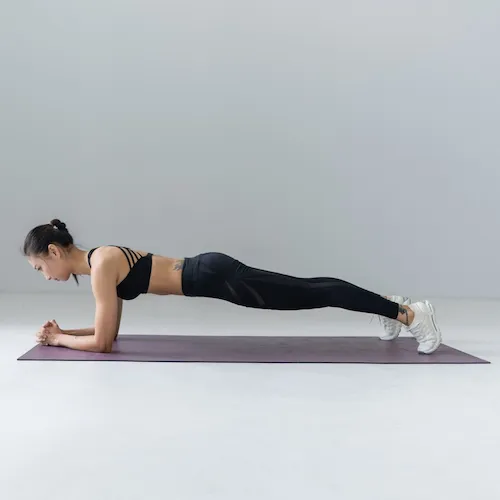
Try To Get Outside Every Day & Get Some Physical Exercise
This can have a huge effect on well-being and sleep.
Practice Mindfulness & Meditation
Finally, if you are struggling with anxiety then practising mindfulness or meditation can help, as can getting physical exercise regularly. However, if you are worried about your mental health and are finding that your sleep is very affected, then it may be wise to speak to your doctor.
I hope you find these tips for a good night's sleep helpful, as, with many other things in life, it's about trying different approaches and finding the solution that works best for you. As we collectively battle through this tough period, prioritising your own wellbeing is more important than ever, and I can think of no better place to start than a good night's sleep.
The above piece was written and provided by Ursula Quinn for the use of EZ Living Furniture. For more information on sleeping tips visit her website here!
We hope you enjoyed this content and found it useful and informative. We aim to share our expertise and knowledge with our customers and to do this we have a team of content creators working tirelessly behind the scenes. We do not use AI to create our content. Click this link to find out more about our team and content guidelines.
